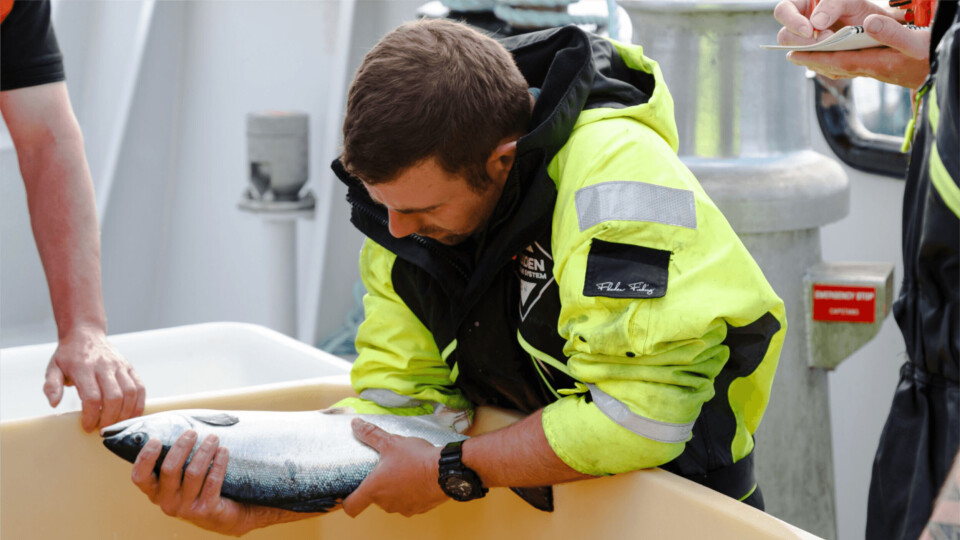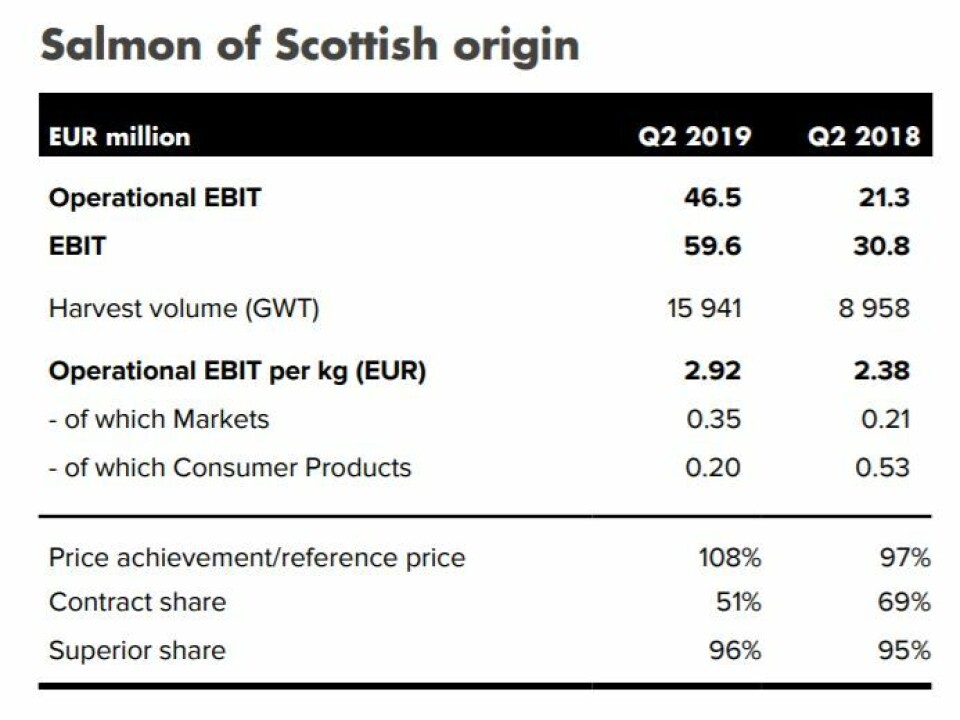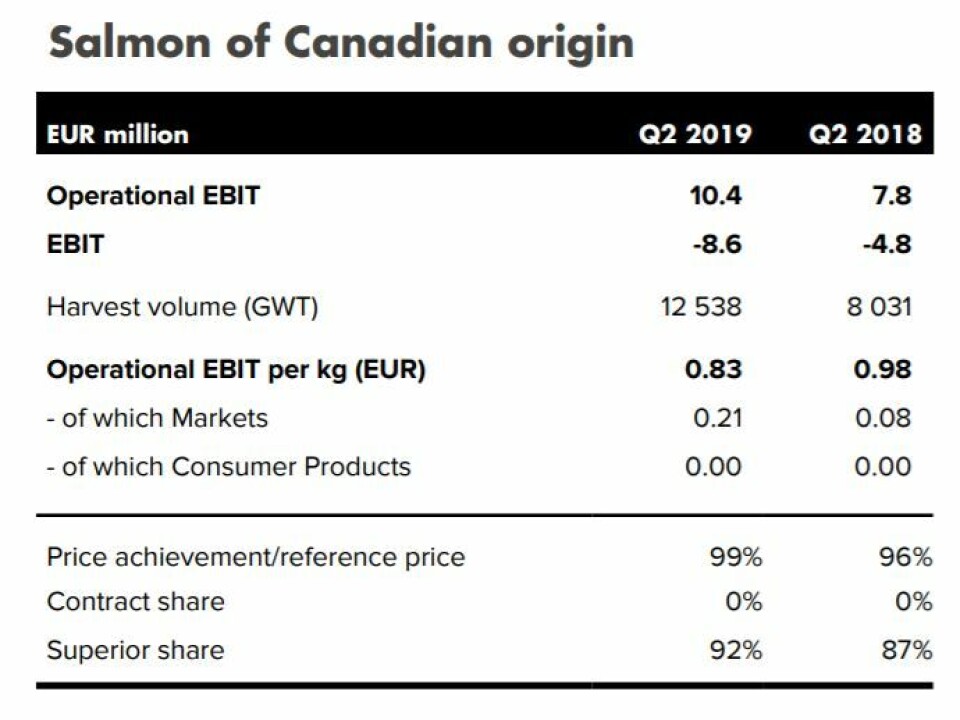
Scotland sets the pace as Mowi makes record Q2 EBIT
The world’s biggest salmon farmer, Mowi, has reported its highest-ever second quarter EBIT of €211 million, up from €175m in Q2 2918, with Mowi Scotland earning the highest amount per kilo.
“This was a good quarter for Mowi with 26% increase in farming volumes year over year and an overall solid operational performance. The costs decreased in the farming operations, and sales of both feed and value-added products were record-high”, said Mowi chief executive, Alf-Helge Aarskog.
Bigger harvest
Operational revenues were €1,021 million (Q2 2018: €888m) in Q2 2019, and total harvest volume was 98,483 tonnes (78,346). Harvest guidance for 2019 is unchanged at 430,000 tonnes.
Salmon of Scottish origin achieved an operational EBIT per kilo of €2.92 (€2.38), while Norway-grown fish made €2.45 (€2.56).

Scotland harvest up, costs down
The second quarter harvest volume in Scotland was 15,941 tonnes gutted weight, nearly double to 8,958 tonnes harvested in Q2 2018, when stocking decisions meant the Scottish operation produced fewer fish than in 2017. This year’s Q2 increase was due to increased opening biomass and improved survival rate, Mowi said in its Q2 report.
Scotland’s full cost per kg decreased compared with the second quarter of 2018 on improved biology and increased volumes.
Biological costs per kg decreased by 19% from the corresponding quarter of 2018, particularly related to feed costs and health costs.
Positive scale effects
Non-seawater costs decreased by 17% on cost reductions and positive scale effects.
Incident-based mortality losses in the amount of €0.5m were recognised in the quarter related to treatments (no incident-based mortality in the second quarter of 2018).
The overall sea lice situation was at the same level as in the comparable quarter. However, sea lice levels at the end of the quarter were higher than at the end of the corresponding quarter of 2018.

Challenges in Canada East
Returns on Chilean-grown salmon were €1.87 per kilo (€1.86), and EBIT per kilo for Canadian-grown salmon fell to €0.83 (€0.98).
Operational EBIT for Mowi Canada amounted to €10.4m in Q2 (€7.8m).
Earnings were mainly related to Canada West (British Columbia) due to a “challenging quarter” in Canada East.
The second quarter harvest volume was 12,538 tonnes gutted weight (8,031 tonnes). Of the increase of 4,507 tonnes, 3,015 tonnes are related to Mowi Canada East.
Power outage
“The cost level in the second quarter of 2019 decreased by 3% from the comparable quarter,” reported Mowi
“Improved costs in Canada West on somewhat improved biology more than offset the effect of high costs in Canada East. Canada East was impacted by small fish following cold temperatures and incident-based mortality. Incident-based mortality of €1.7m was recognised in the quarter (€1.9m), mainly related to loss of smolt in Canada East following a power outage.
“Production in Canada West was higher than in the second quarter of 2018 on increased opening biomass, good appetite and favourable environmental factors. However, production in Canada East was impacted by seasonal low water temperatures.”

Feed EBIT rises
Mowi Feed reported an operational EBIT of €3.0m (€0.8m), and Mowi Consumer Products reported an operational EBIT of €4.9m (€12.0m).
There was a seasonally all-time high sales volume in Consumer Products at 47,278 tonnes end product weight (41,786 tonnes), but earnings were impacted by fierce competition in the European value-added market.
In a press release, Mowi said that in line with its self-sufficiency strategy on feed, Mowi Feed continues to develop its range of products, including fresh water, organic and cleaner fish diets.
“Our new feed plant [at Kyleakin, Skye] in Scotland started trial production in May, and has recently started to produce and deliver feed to our Scottish farming operations,” said Aarskog.
“This is an important step towards self-sufficiency of feed and further integration of the value chain. It is particularly encouraging that we have increased production capacity from 170,000 tonnes to 240,000 tonnes.”























































